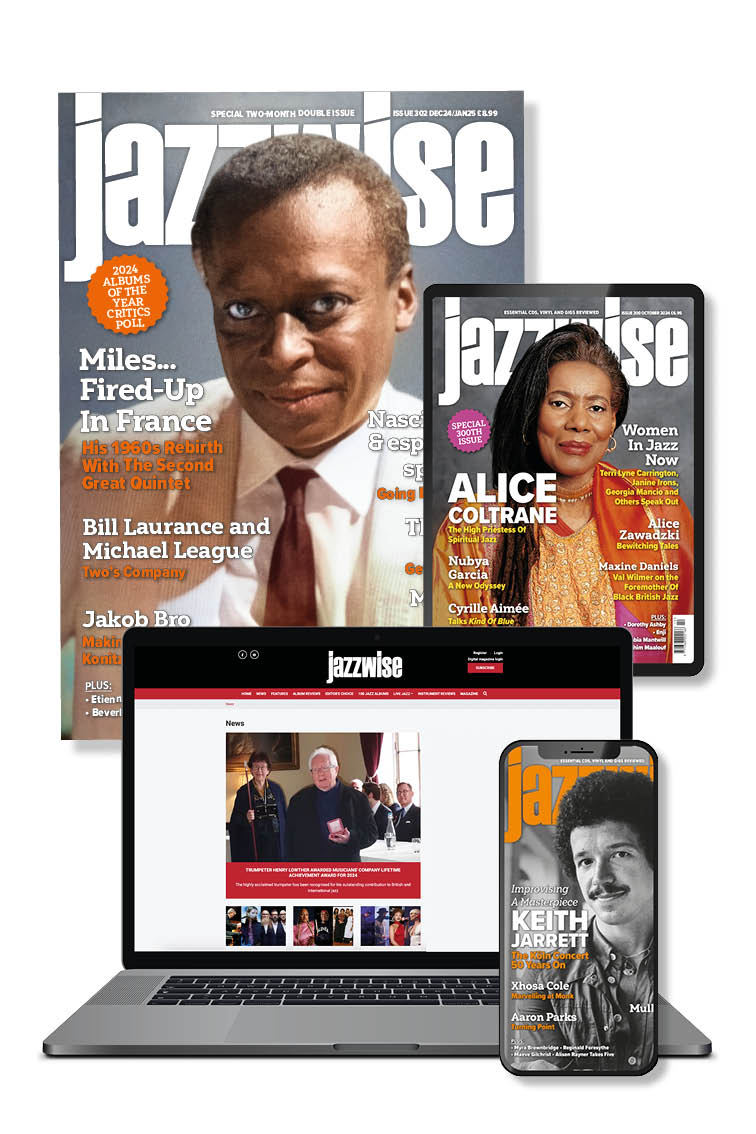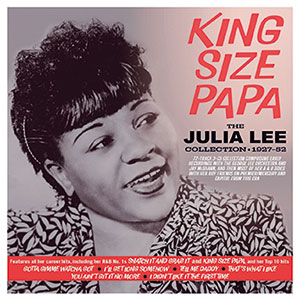Julia Lee: King Size Papa: The Julia Lee Collection 1927-1952
Author: Alyn Shipton
View record and artist detailsRecord and Artist Details
Musicians: |
Geechie Smith (t) |
Label: |
Acrobat |
Magazine Review Date: |
September/2023 |
Media Format: |
3 CD |
Catalogue Number: |
ACTRCD9134 |
RecordDate: |
Rec. 1927 – 1952 |
There's a good reason why Con Chapmen's recent history of Kansas City jazz has a photo of George E Lee's band on the cover, because at its centre is one of the least well-appreciated, yet, in her time, most popular female jazz musicians from the town.
Acrobat has done every jazz fan a favour by compiling this anthology of Julia Lee's work. She progresses from pianist and singer in her brother George's band, via being vocalist with Jay McShann, to leading her own Boy Friends.
From 1946 to 1952 she was signed to Capitol (recording in Los Angeles) and her repertoire for this closely resembles that of her New Orleans counterpart Blue Lu Barker (who was on the label at roughly the same time) as it's a mixture of standards and mildly risqué songs, delivered with a knowing emphasis on the double-entendres.
She is a very effective pianist, elbowing her way out of the ensemble in her brother's band on ‘Merritt Stomp’ showing in Gunther Schuller's words that she was musically “in advance of the rest of the band”. Her later piano feature ‘Charmaine’ from 1948 is a clever combination of stride and boogie styles.
As a singer, she delivers the title track and others such as ‘Cold Hearted Daddy’ or ‘I Didn’t Like it The First Time’ (ostensibly about spinach!) with the equivalent of a wink and a nudge, but she is also able to sing a standard beautifully – ‘The Glory of Love’ is a fine example – packing the lyrics with meaning and really putting the song over. In the late 1940s, rather than being marketed by her label as a jazz artist, she made a number of appearances on both the R&B and Pop charts.
Although this did not continue into the 1950s, she nonetheless remained one of her home town's most popular entertainers up until her death in 1958. Even with her slightly scaled-down groups from the 1950s, included here, her presence on record is still powerful, both as singer and pianist, and at last we can properly appreciate the full span of her work.

Jazzwise Full Club
- Latest print and digital issues
- Digital archive since 1997
- Download tracks from bonus compilation albums throughout the year
- Reviews Database access
From £9.08 / month
Subscribe
Jazzwise Digital Club
- Latest digital issues
- Digital archive since 1997
- Download tracks from bonus compilation albums during the year
- Reviews Database access

